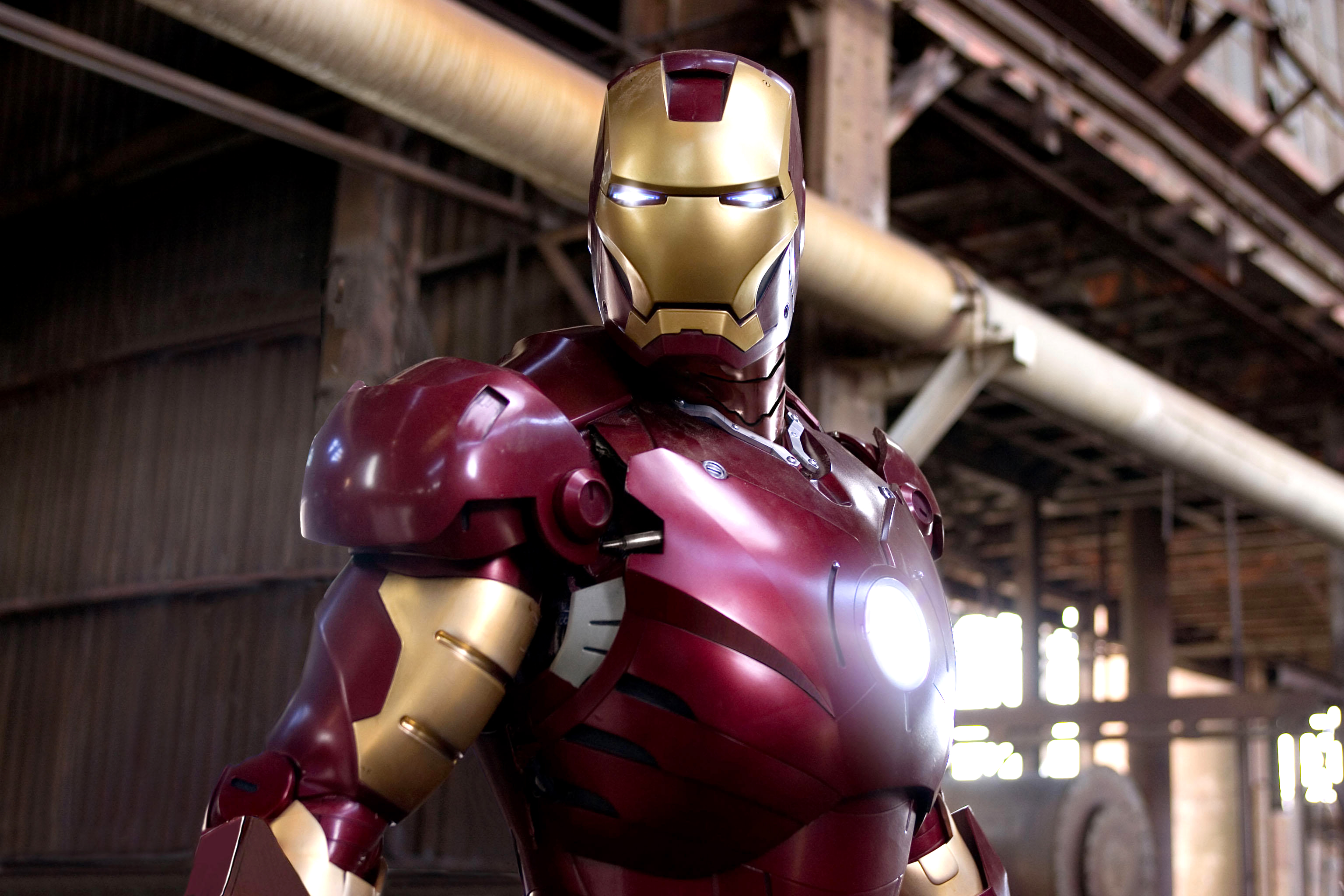Why Iron Man was the most pivotal movie of the last decade
Too bad most people have forgotten why


A free daily email with the biggest news stories of the day – and the best features from TheWeek.com
You are now subscribed
Your newsletter sign-up was successful
In May 2008, Iron Man introduced rich jerk Tony Stark to the public — and changed the entire superhero industry in the process.
Iron Man inducted Stark as the first official member of the Avengers. The movie was a flash of brash brilliance, and one that was lauded for having crossover appeal outside the usual comic-fan audience. But the most consequential part of the film may be a seemingly minor aside uttered by Nick Fury to Stark in the post-credits scene.
You think you're the only superhero in the world? Mr. Stark, you've become part of a bigger universe. You just don't know it yet. [Nick Fury, Iron Man]
Stark did indeed become part of a bigger universe. And that has been revolutionary for entertainment — not just for fans, but for the business.
The Week
Escape your echo chamber. Get the facts behind the news, plus analysis from multiple perspectives.

Sign up for The Week's Free Newsletters
From our morning news briefing to a weekly Good News Newsletter, get the best of The Week delivered directly to your inbox.
From our morning news briefing to a weekly Good News Newsletter, get the best of The Week delivered directly to your inbox.
Today, the Marvel Cinematic Universe — the MCU — is one of pop culture's most dominant entities. Since Iron Man's premiere, Disney and Marvel Studios have raked in a worldwide gross well over $13 billion across 19 movies. Meanwhile, Iron Man co-stars in Spider-Man's movie. Black Panther is introduced in Captain America's film. And they all get together to save the world in the Avengers flicks. Superheroes are everywhere; superheroes are everything. And the borders between their films are all but nonexistent.
Marvel had always intended to team Iron Man with The Hulk, Thor, Hawkeye, Black Widow, and Captain America. Together they would ward off inconceivable planetary dangers, and eventually team up with even more heroes, like Scarlet Witch, the Vision, and Black Panther. This plan obviously worked exceptionally well.
Like all blockbusters, the profitable superhero movies still got sequels a decade ago. What they didn't get were cousin films and nominal standalone productions linked through inter-universe references, cameo appearances, and storylines bleeding over from different films. The superhero film — in defiance of its parent medium, the comic — used to be self-contained. Read a comic book or two and you'll find heroes crossing over from the pages of their own properties to others, but in 2008 this was a convention standard on the page but foreign on the screen.
Nobody really thought to try that with movies — not until Iron Man set the MCU's wheels in motion. Back in 2008, the post-credits tease in Iron Man felt audacious. Superheroes were compartmentalized. They abided the frames of the movies built around them; they didn't set foot onto other stages, trade banter, fight the same villains, or beef with each other. Iron Man promised something different and totally unheard of — and with last week's release of Avengers: Infinity War, the Marvel enterprise has come full circle.
A free daily email with the biggest news stories of the day – and the best features from TheWeek.com
Not only that, but for a movie about a billionaire playboy genius who builds a suit of powered armor to escape from terrorists — and later, to satisfy his newfound need to bring justice to a troubled world — Iron Man has a surprisingly intimate scope. There are no civil wars fought, no city takeovers and hostage threats, no galactic beings intent on destroying the planet. There is only a moneyed megalomaniac who gets shocked into becoming a better person after confronting the ugly consequences of his arms manufacturing business face to face.
Granted, yes, there is that slugfest between Stark and his business partner, Obadiah Stane, both of them clad in Iron Man armor. But in a universe that's come to include a pantheon of gods, sorcery, and green-skinned rage monsters, powered armor feels pretty down to earth. After all, beneath it, there's only a man.
That's another thing that makes Tony Stark, and Iron Man, essential to the post-2010s superhero boom. Stark isn't quite relatable, per se — few among us can truly relate to a guy with bottomless resources and Robert Downey Jr.'s good looks — but he is, at the core, a human on the quest for humility. Stark is the template for a number of characters brought to screens large and small since Iron Man's release 10 years ago, from The Green Hornet's Britt Reid to Arrow's Oliver Queen in the DC universe, to even the MCU's Stephen Strange, the Sorcerer Supreme, whose arc in the 2016 movie Doctor Strange bears a striking resemblance to Stark's in Iron Man: arrogant man of wealth goes through a traumatic experience that humbles him and pushes him to abandon his old life to pursue higher aspirations.
After Iron Man, projects centered on swaggering ladykillers with too much money became their own sub-niche in the superhero genre, from the aforementioned The Green Hornet and Arrow to The Green Lantern, whose hero Hal Jordan makes up in cockiness what he lacks in funds.
That's not to say Iron Man invented the modern superhero. But it did invent the modern superhero movie as we know it. Taken together, the film was a watershed: It opened the door to a new kind of superhero, and spawned a collection of interconnected films for those heroes to appear in.
So it turns out Tony Stark has a superpower after all: He can bring together heroes from across nations and even galaxies, by doing nothing more than rejecting his industrialist ways.
Bostonian culture journalist Andy Crump covers the movies, beer, music, and being a dad for way too many outlets, perhaps even yours: Paste Magazine, The Playlist, Mic, The Week, Hop Culture, and Inverse, plus others. You can follow him on Twitter and find his collected writing at his personal blog. He is composed of roughly 65 percent craft beer.
-
 Political cartoons for February 15
Political cartoons for February 15Cartoons Sunday's political cartoons include political ventriloquism, Europe in the middle, and more
-
 The broken water companies failing England and Wales
The broken water companies failing England and WalesExplainer With rising bills, deteriorating river health and a lack of investment, regulators face an uphill battle to stabilise the industry
-
 A thrilling foodie city in northern Japan
A thrilling foodie city in northern JapanThe Week Recommends The food scene here is ‘unspoilt’ and ‘fun’
-
 Walter Isaacson's 'Elon Musk' can 'scarcely contain its subject'
Walter Isaacson's 'Elon Musk' can 'scarcely contain its subject'The latest biography on the elusive tech mogul is causing a stir among critics
-
 Welcome to the new TheWeek.com!
Welcome to the new TheWeek.com!The Explainer Please allow us to reintroduce ourselves
-
 The Oscars finale was a heartless disaster
The Oscars finale was a heartless disasterThe Explainer A calculated attempt at emotional manipulation goes very wrong
-
 Most awkward awards show ever?
Most awkward awards show ever?The Explainer The best, worst, and most shocking moments from a chaotic Golden Globes
-
 The possible silver lining to the Warner Bros. deal
The possible silver lining to the Warner Bros. dealThe Explainer Could what's terrible for theaters be good for creators?
-
 Jeffrey Wright is the new 'narrator voice'
Jeffrey Wright is the new 'narrator voice'The Explainer Move over, Sam Elliott and Morgan Freeman
-
 This week's literary events are the biggest award shows of 2020
This week's literary events are the biggest award shows of 2020feature So long, Oscar. Hello, Booker.
-
 What She Dies Tomorrow can teach us about our unshakable obsession with mortality
What She Dies Tomorrow can teach us about our unshakable obsession with mortalityThe Explainer This film isn't about the pandemic. But it can help viewers confront their fears about death.
